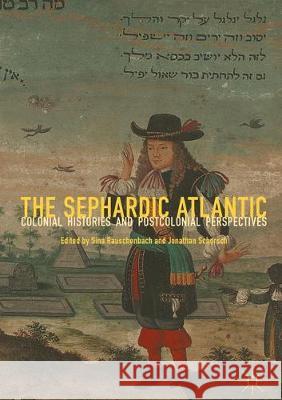The Sephardic Atlantic » książka
topmenu
The Sephardic Atlantic
ISBN-13: 9783030405397 / Angielski / Miękka / 2020
The Sephardic Atlantic
ISBN-13: 9783030405397 / Angielski / Miękka / 2020
cena 644,07
(netto: 613,40 VAT: 5%)
Najniższa cena z 30 dni: 616,85
(netto: 613,40 VAT: 5%)
Najniższa cena z 30 dni: 616,85
Termin realizacji zamówienia:
ok. 22 dni roboczych.
ok. 22 dni roboczych.
Darmowa dostawa!
This volume contributes to the growing field of Early Modern Jewish Atlantic History, while stimulating new discussions at the interface between Jewish Studies and Postcolonial Studies. It is a collection of substantive, sophisticated and variegated essays, combining case studies with theoretical reflections, organized into three sections: race and blood, metropoles and colonies, and history and memory. Twelve chapters treat converso slave traders, race and early Afro-Portuguese relations in West Africa, Sephardim and people of color in nineteenth-century Curaçao, Portuguese converso/Sephardic imperialist behavior, Caspar Barlaeus’ attitude toward Jews in the Sephardic Atlantic, Jewish-Creole historiography in eighteenth-century Suriname, Savannah’s eighteenth-century Sephardic community in an Altantic setting, Freemasonry and Sephardim in the British Empire, the figure of Columbus in popular literature about the Caribbean, key works of Caribbean postcolonial literature on Sephardim, the holocaust, slavery and race, Canadian Jewish identity in the reception history of Esther Brandeau/Jacques La Fargue and Moroccan-Jewish memories of a sixteenth-century Portuguese military defeat.











